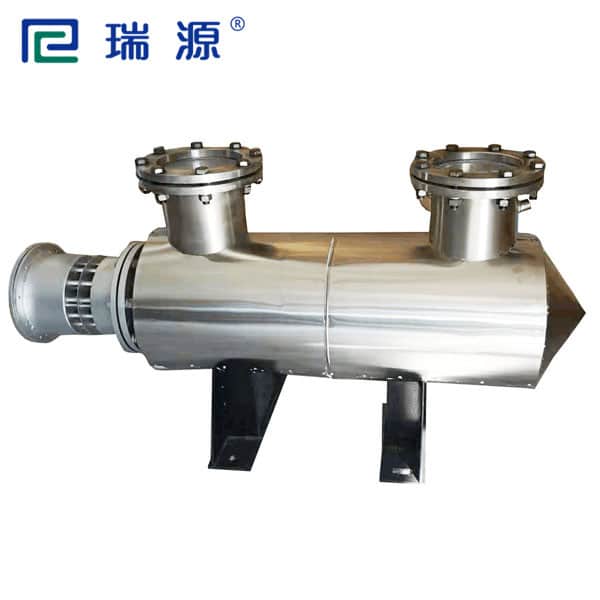Air heater is a common type of heating equipment in modern industry and commerce. It is widely used to heat air, gas or other gaseous media and has flexible application scenarios and efficient heating performance. Compared with traditional heating equipment, air heaters have many unique advantages and differences. In this article, we will introduce the main differences between air heaters and other types of heating equipment to help you make a more informed choice.
1. Different heating media
Air Heaters: An air heater is specially designed to heat air or gas. It usually heats air by means of electricity or gas, and is suitable for applications where the air needs to be heated quickly.
Other types of heating equipment::
- water heater: This type of heating equipment primarily heats water, usually via steam, hot water or oil, and is suitable for application scenarios where a liquid heat source is required.
- Oil heaters: Oil heaters are specially used for heating thermal oil and are widely used in industrial equipment with high temperature control requirements, such as chemical and food processing industries.
make a distinction: The most important feature of an air heater is that it heats gas directly, whereas water and oil heaters focus on liquids or heat transfer media. Air heaters typically achieve a faster heating response because the heating medium is a gas.
2. Heating method
Air Heaters: The air heater is heated in a variety of ways, including electric heating, hot air circulation, and gas heating. It transfers energy to the air or gas through the heating element to achieve the purpose of heating.
Other types of heating equipment::
- electric heater: Electric heaters conduct heat directly to the medium by means of electrical energy and are suitable for heating a wide range of media such as water, oil and gas.
- steam boiler: Steam boilers produce steam by burning fuel and transferring the steam through pipes to where it needs to be heated.
make a distinction: Air heaters typically provide heat quickly and distribute the heating medium (air) evenly. In contrast, water and oil heaters may take more time to achieve uniform heating, especially where high temperatures are required.
3. Efficiency and energy efficiency
Air Heaters: Air heaters have a high level of thermal efficiency, especially electric air heaters, which efficiently convert electrical energy into heat. Gas heaters and electric heaters can also reach high levels of efficiency, making them suitable for environments that require efficiently heated air.
Other types of heating equipment::
- water heater: The efficiency of water heaters is greatly affected by the heating source, heating method and system design, especially in steam and oil boilers, where heat losses are more pronounced.
- Oil heaters: Oil heaters are more efficient but consume more energy to maintain a consistent heat output.
make a distinction: Air heaters are superior to water and oil heaters in terms of efficient, rapid heating, especially when the medium to be heated is a gas. Because water and oil heaters often have heat losses, the overall energy efficiency may be lower than that of air heaters.
4. Installation and Maintenance
Air Heaters: Air heaters are easy to install and generally do not require complex ductwork. Its maintenance is relatively simple, usually requiring only regular cleaning of the heating elements and checking fan operation.
Other types of heating equipment::
- water heater: The installation of water heaters requires additional pipework and additional safety measures to prevent overpressurisation and system leakage.
- Oil heaters: Oil heaters require specialised oil pipework and filtration systems, which are more difficult to maintain and require regular oil changes and inspection of the pipework.
make a distinction: Air heaters have lower installation and maintenance costs and are suitable for applications where complex pipework is not required. Water and oil heaters, on the other hand, require more installation space and higher maintenance costs.
5. application scenario
Air Heaters: Air heaters are mainly used where air or gas needs to be heated, such as workshop heating, ventilation systems, hot air handling equipment, greenhouse heating and so on.
Other types of heating equipment::
- water heater: Water heaters are commonly used in boiler systems, hot water supply, temperature control systems, etc.
- Oil heaters: Oil heaters are usually used in industrial areas with high temperature control, such as chemical industry, food processing and precision machinery and equipment.
make a distinction: Air heaters are specifically designed to heat gases and are widely used in many ventilation and air handling systems. In contrast, water and oil heaters are typically used for temperature control, boiler heating and other applications that require higher temperatures and more complex media.
6. cost variation
Air Heaters: The air heater is relatively inexpensive and has reasonable installation and maintenance costs. It is suitable for users who need a low initial investment and fast heating.
Other types of heating equipment::
- water heater: Water heaters are costly to install and maintain, especially with steam systems requiring complex pipework and safety equipment.
- Oil heaters: Oil heaters require specialised facilities and systems and are more costly.
make a distinction: Air heaters are cheaper and are suitable for small businesses and users who require less initial investment. Water and oil heaters, on the other hand, are suitable for applications that require higher heating capacity and higher temperatures.
Our company can non-standard custom products, click the menu bar to contact us to customise, you can also refer to the first!product pageAppreciate our company's products oh!
Recommended Reading:
Air Heater Price and Cost-effective - Jiangsu Ruiyuan Heating Equipment Technology Co.
